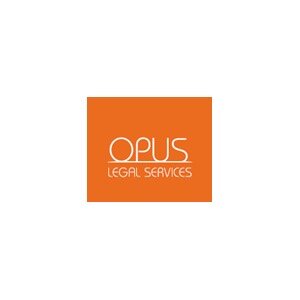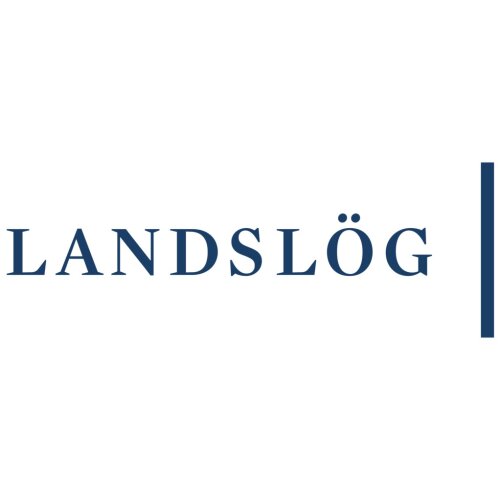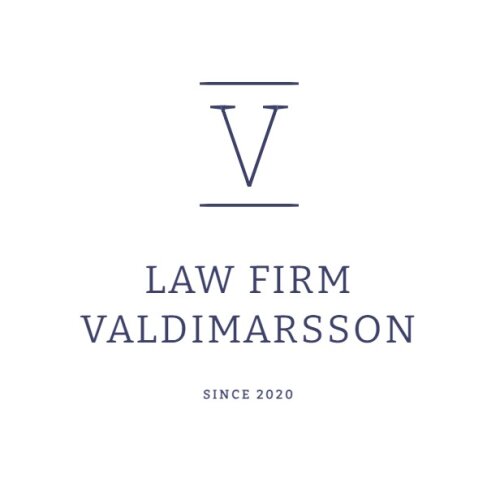Best ESG Advisory & Compliance Lawyers in Iceland
Share your needs with us, get contacted by law firms.
Free. Takes 2 min.
Or refine your search by selecting a city:
List of the best lawyers in Iceland
About ESG Advisory & Compliance Law in Iceland
Environmental, Social, and Governance (ESG) Advisory & Compliance refers to the legal and regulatory framework that ensures businesses operate in a responsible and sustainable manner. In Iceland, ESG practices are closely aligned with European Union directives due to the country’s membership in the European Economic Area (EEA). The Icelandic government and regulators have prioritized responsible business conduct, transparency, and the integration of sustainability risks into corporate decision-making. Businesses in Iceland, particularly publicly listed and larger companies, are increasingly required to report on ESG matters, implement robust governance structures, and take responsibility for social and environmental impacts.
Why You May Need a Lawyer
The growing complexity and importance of ESG compliance means that legal challenges and uncertainties often arise. You may need the expertise of an ESG lawyer in the following situations:
- If your company must comply with new ESG-related reporting or disclosure requirements
- When implementing or updating corporate social responsibility (CSR) or sustainability policies
- During mergers, acquisitions, or investments that require ESG due diligence
- If you face allegations of greenwashing or misleading sustainability claims
- When stakeholders, such as investors or regulators, request greater transparency or accountability
- If your supply chain involves risks related to human rights or environmental impact
- When navigating regulatory changes affecting climate change, emissions reporting, or corporate governance
- To assess risks and liabilities related to ESG for your business sector in Iceland
- When communicating non-financial information to international partners or markets
- For advice on interacting with governmental bodies or preparing for ESG audits
Local Laws Overview
Icelandic ESG law is shaped by legislation, government policies, and EEA regulations that emphasize responsible business conduct, sustainability, and corporate transparency. Key aspects include:
- Non-Financial Reporting: Large companies and public-interest entities are required to disclose non-financial information regarding environmental matters, social responsibility, employee policies, human rights, and anti-corruption measures, largely following the EU Non-Financial Reporting Directive.
- Corporate Sustainability Due Diligence: Businesses must identify, prevent, and address adverse impacts on human rights and the environment in their operations and supply chains as per EEA regulations.
- Climate-Related Rules: Iceland’s Climate Act and policies impose obligations regarding greenhouse gas reductions, energy usage, and adaptation to climate change.
- Governance Standards: Companies are subject to rules on board diversity, transparency, and anti-corruption under Icelandic law and regulatory codes.
- Green Finance: Financial institutions are subject to sustainable finance requirements and must integrate ESG criteria into lending and investment decisions.
- Anti-Greenwashing Enforcement: Icelandic competition and consumer protection authorities monitor and act against misleading ESG claims in consumer advertising and investor communications.
Frequently Asked Questions
What does ESG compliance mean for companies operating in Iceland?
ESG compliance means ensuring that your business meets local and EEA requirements concerning environmental impact, social responsibility, and good governance. It covers areas such as climate reporting, anti-corruption policies, labor standards, and supply chain transparency.
Are there mandatory ESG disclosures in Iceland?
Certain companies, typically large businesses and public-interest entities, must disclose non-financial information each year. This includes reporting on environmental, social, and governance matters as required under Icelandic law and EEA standards.
What are the penalties for ESG non-compliance in Iceland?
Penalties can include fines, reputational damage, regulatory sanctions, or suspension from certain activities. Non-compliance may also affect access to financing or contracts, especially where government or international partners are involved.
How does Iceland treat greenwashing or misleading ESG claims?
Icelandic authorities take greenwashing seriously. Companies making false or exaggerated ESG statements in advertising or reporting can face investigations by consumer protection agencies, with potential sanctions or public announcements of violations.
What role do Icelandic regulators play in ESG matters?
Regulators such as the Central Bank of Iceland, the Consumer Agency, and the Environment Agency monitor compliance, issue guidance, and enforce ESG rules within their areas of responsibility.
Which sectors face the most ESG scrutiny in Iceland?
Energy, fishing and seafood, finance, and tourism are among sectors facing increased ESG scrutiny due to environmental impacts and global supply chain considerations.
Are ESG requirements the same for all companies in Iceland?
No. Larger companies, those listed on stock exchanges, and entities with significant public interest obligations face stricter ESG reporting and due diligence rules, while smaller businesses may have fewer mandatory obligations but still face reputational and market expectations.
Does Iceland align its ESG laws with the European Union?
Yes. As an EEA member, Iceland implements most EU ESG-related directives and regulations, ensuring close alignment with European standards, especially in non-financial reporting and climate action.
How can a lawyer help with ESG compliance in Iceland?
A lawyer provides guidance on understanding and applying the relevant laws, developing compliance frameworks, conducting due diligence, representing your interests in regulatory investigations, and managing risks relating to ESG obligations.
What should I do if my business is accused of breaching ESG rules?
Consult a lawyer experienced in ESG laws immediately. They can help assess your legal position, respond to authorities, develop a remediation plan, and minimize reputational and financial impacts.
Additional Resources
If you need more information or support regarding ESG Advisory & Compliance in Iceland, the following organizations and resources can be helpful:
- Icelandic Environmental Agency (Umhverfisstofnun)
- Icelandic Consumer Agency (Neytendastofa)
- Central Bank of Iceland - Financial Supervisory Authority (Fjármálaeftirlitið)
- Icelandic Chamber of Commerce
- Directorate of Labour (Vinnumálastofnun)
- Icelandic Data Protection Authority (Persónuvernd) for privacy-related ESG issues
- European Economic Area (EEA) official resources on non-financial reporting and ESG standards
- Local law firms and legal aid offices specializing in corporate law and sustainability
Next Steps
If you need legal assistance in ESG Advisory & Compliance in Iceland, consider taking the following steps:
- Assess your business needs and identify specific ESG concerns or obligations you may face
- Consult publicly available guidance and resources from Icelandic regulatory bodies
- Contact a qualified Icelandic lawyer or law firm with expertise in ESG, corporate law, or sustainability matters
- Prepare relevant documents, such as existing policies, prior ESG reports, or communications with authorities, for your legal consultation
- Stay updated on developments in local and European ESG laws, as regulations can evolve quickly
- Engage in ongoing dialogue with your legal advisor to ensure proactive compliance and risk management
Proactively addressing ESG Advisory & Compliance sets a strong foundation for your business’s reputation and regulatory security in Iceland’s dynamic legal environment.
Lawzana helps you find the best lawyers and law firms in Iceland through a curated and pre-screened list of qualified legal professionals. Our platform offers rankings and detailed profiles of attorneys and law firms, allowing you to compare based on practice areas, including ESG Advisory & Compliance, experience, and client feedback.
Each profile includes a description of the firm's areas of practice, client reviews, team members and partners, year of establishment, spoken languages, office locations, contact information, social media presence, and any published articles or resources. Most firms on our platform speak English and are experienced in both local and international legal matters.
Get a quote from top-rated law firms in Iceland — quickly, securely, and without unnecessary hassle.
Disclaimer:
The information provided on this page is for general informational purposes only and does not constitute legal advice. While we strive to ensure the accuracy and relevance of the content, legal information may change over time, and interpretations of the law can vary. You should always consult with a qualified legal professional for advice specific to your situation.
We disclaim all liability for actions taken or not taken based on the content of this page. If you believe any information is incorrect or outdated, please contact us, and we will review and update it where appropriate.
Browse esg advisory & compliance law firms by city in Iceland
Refine your search by selecting a city.
















